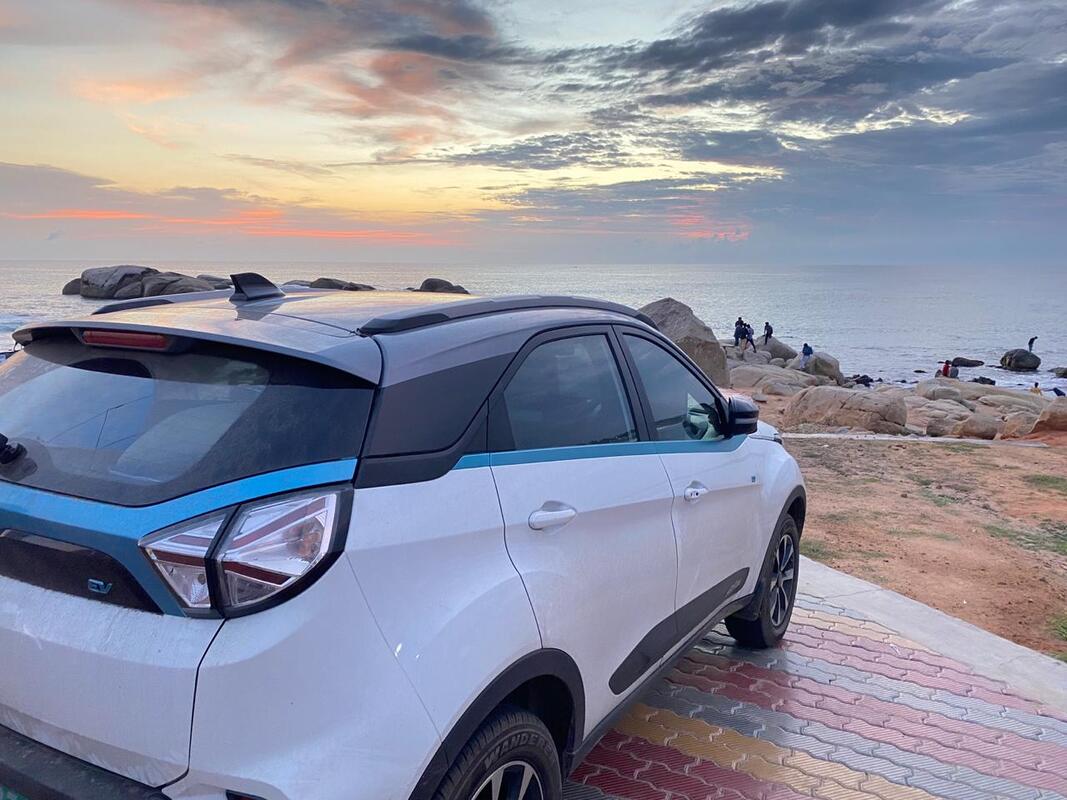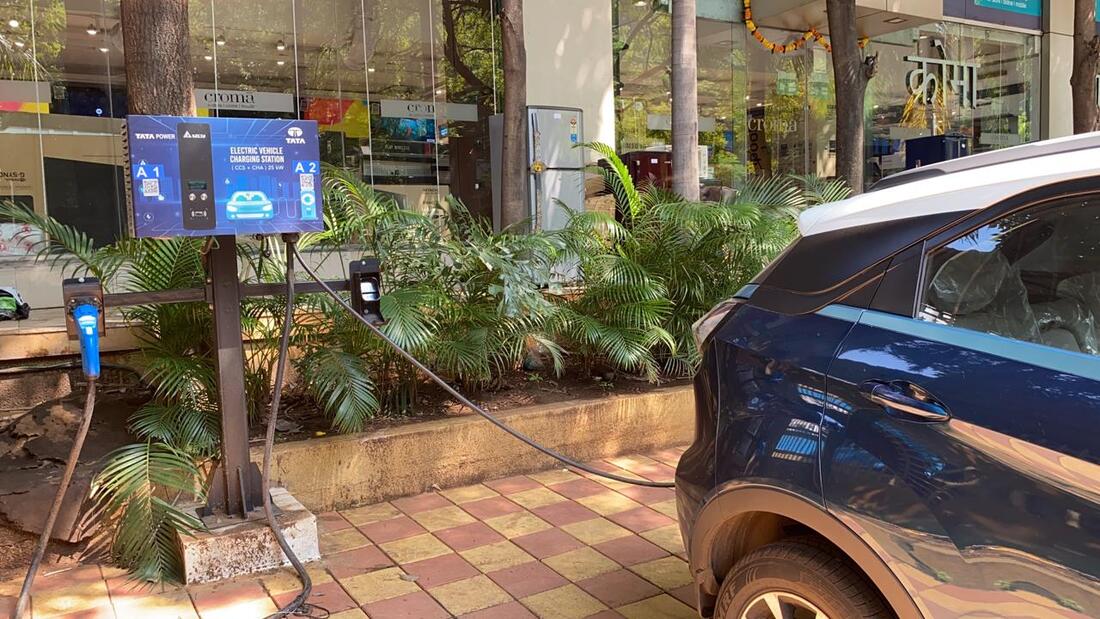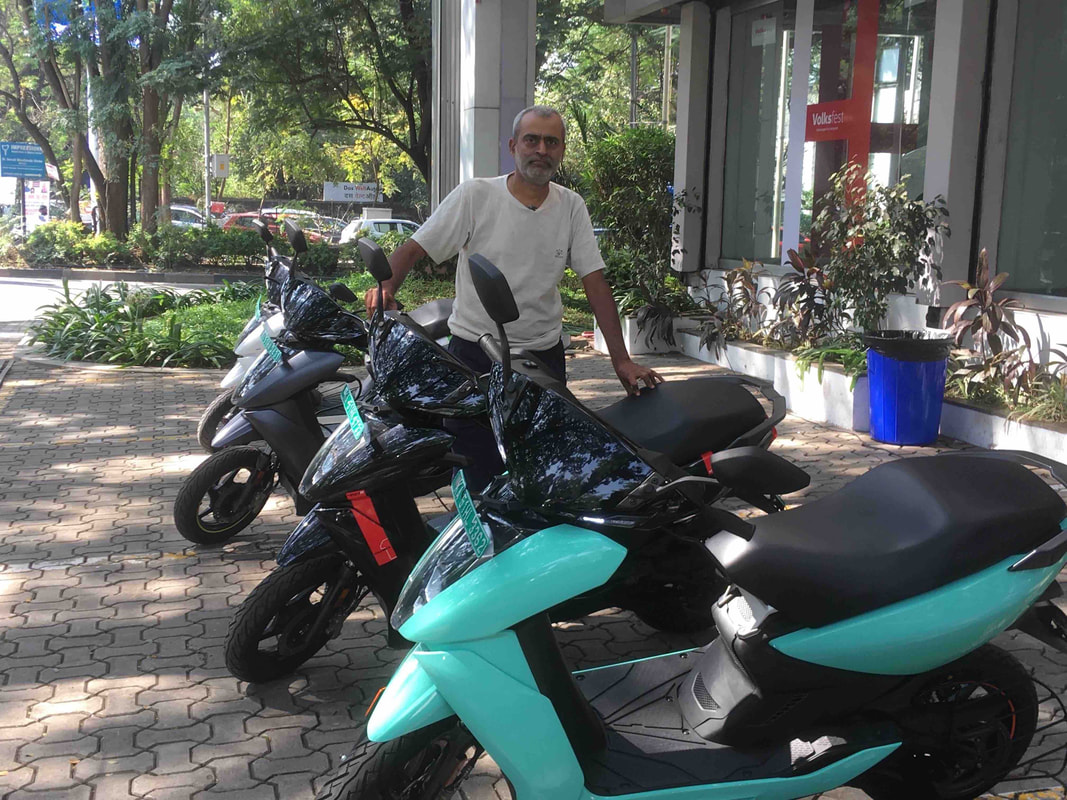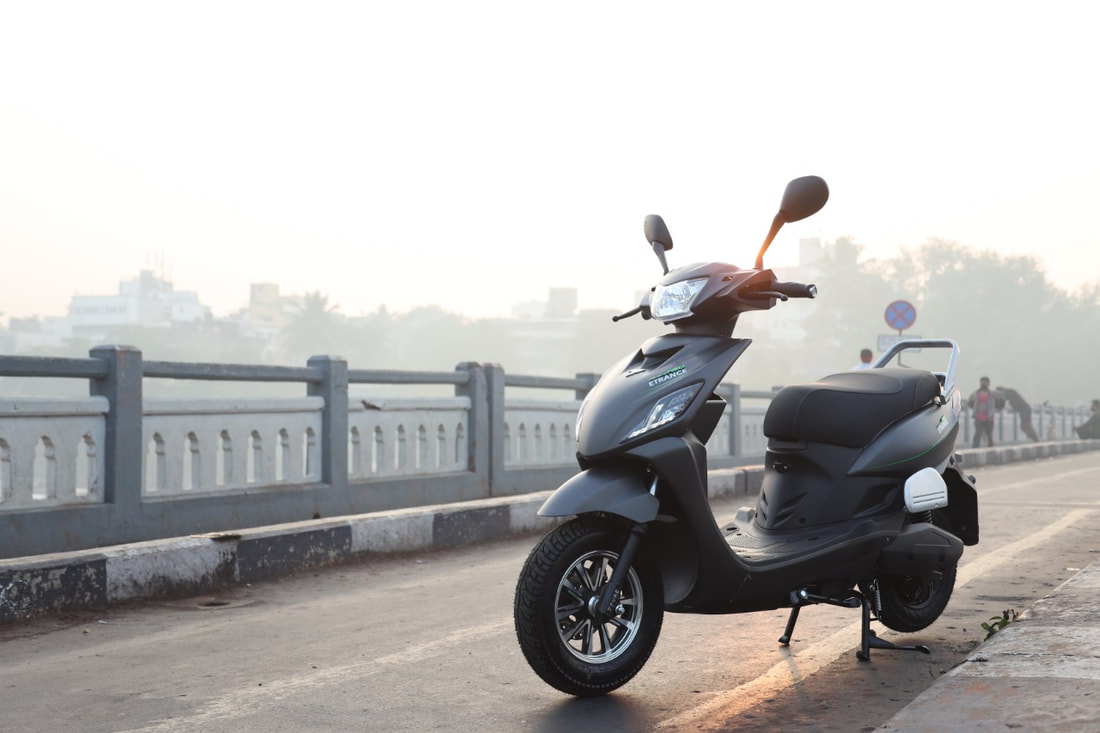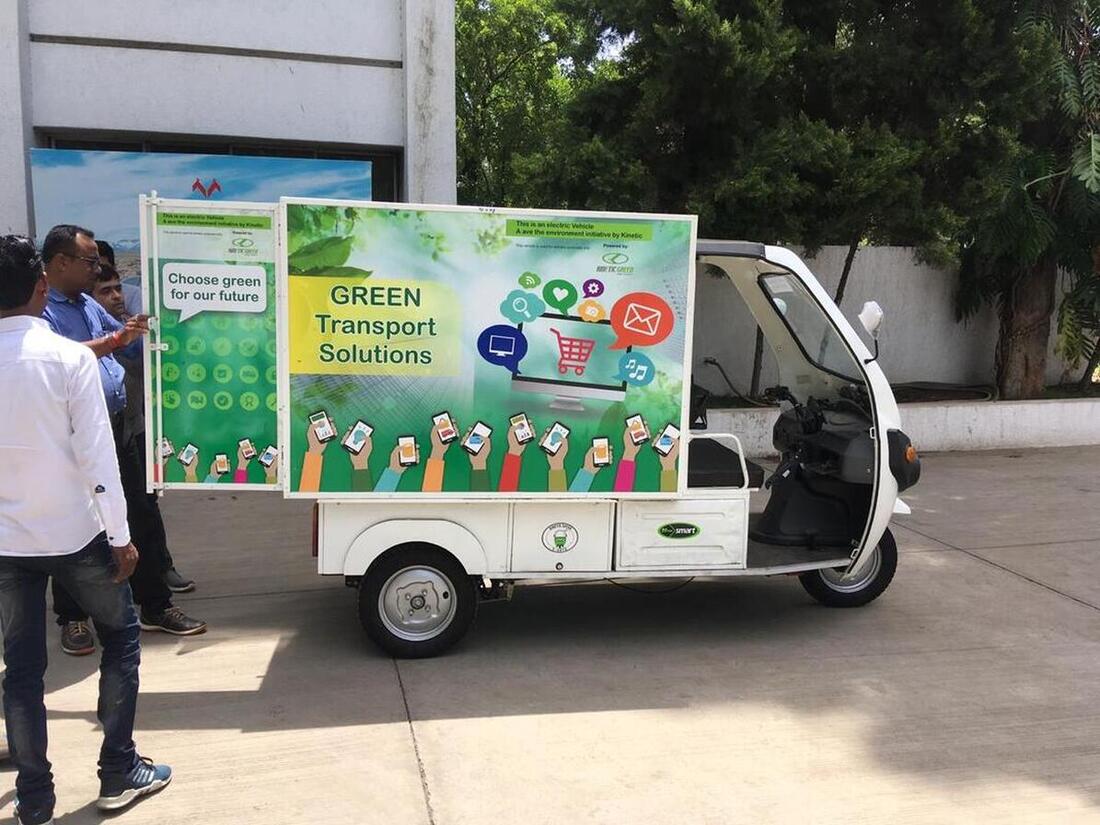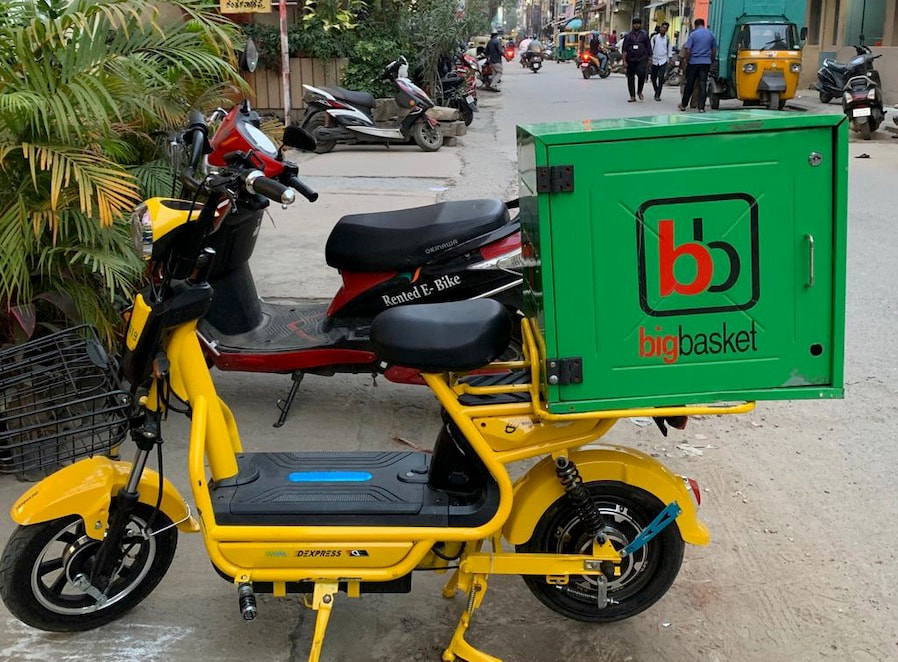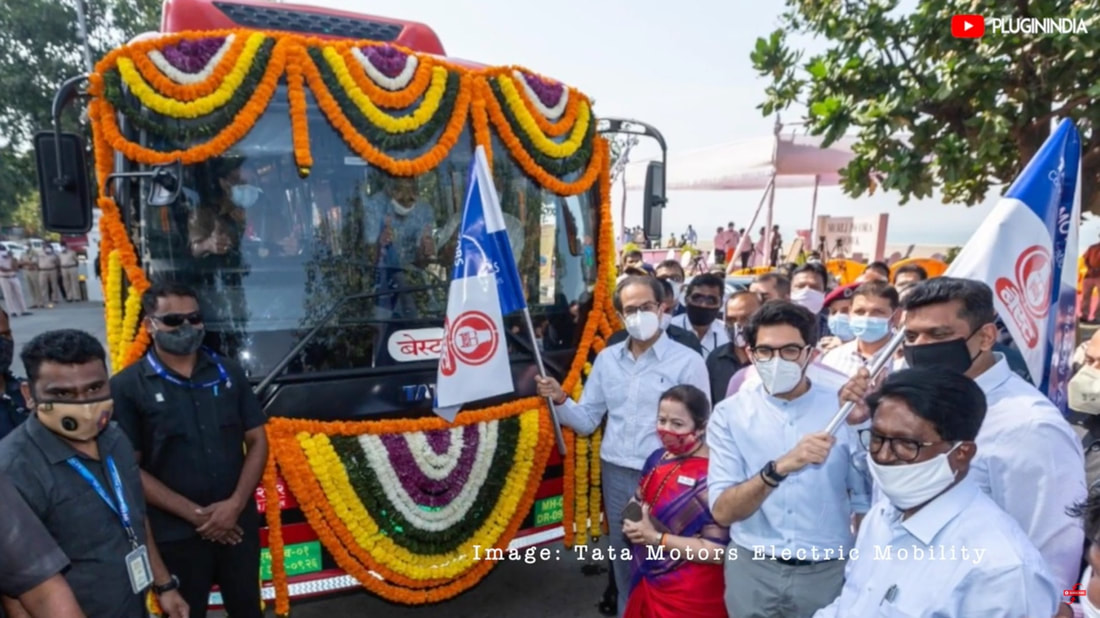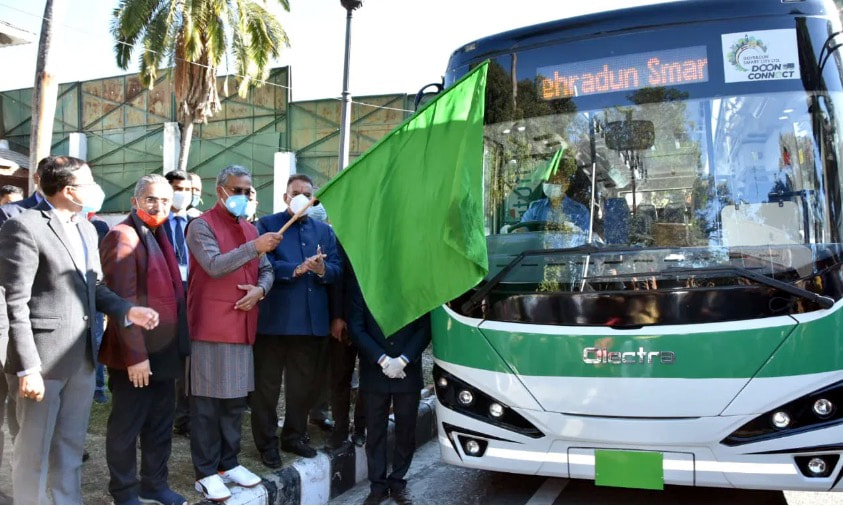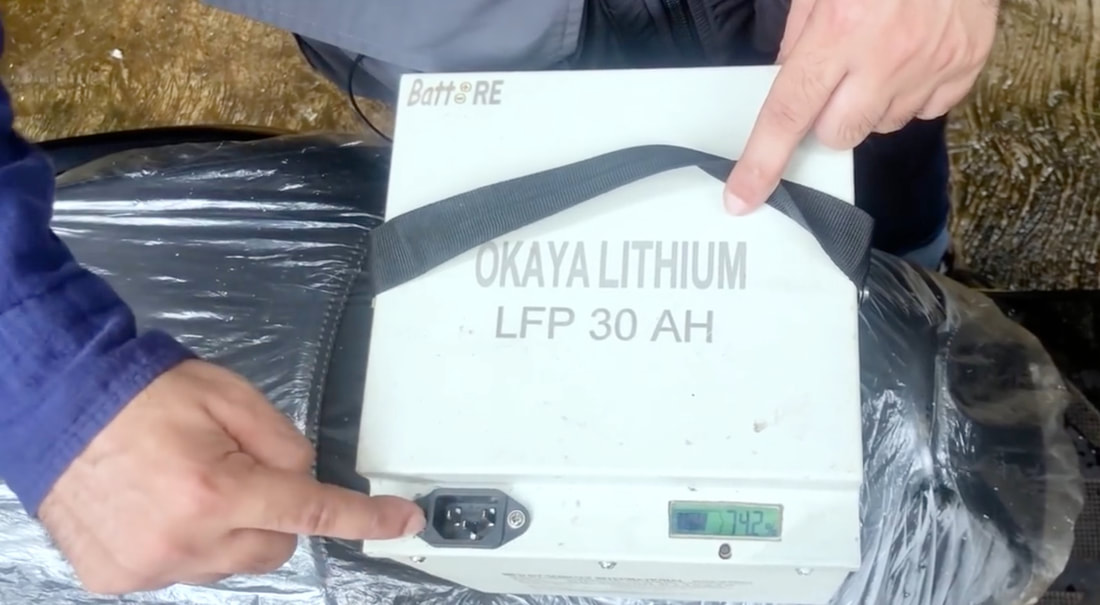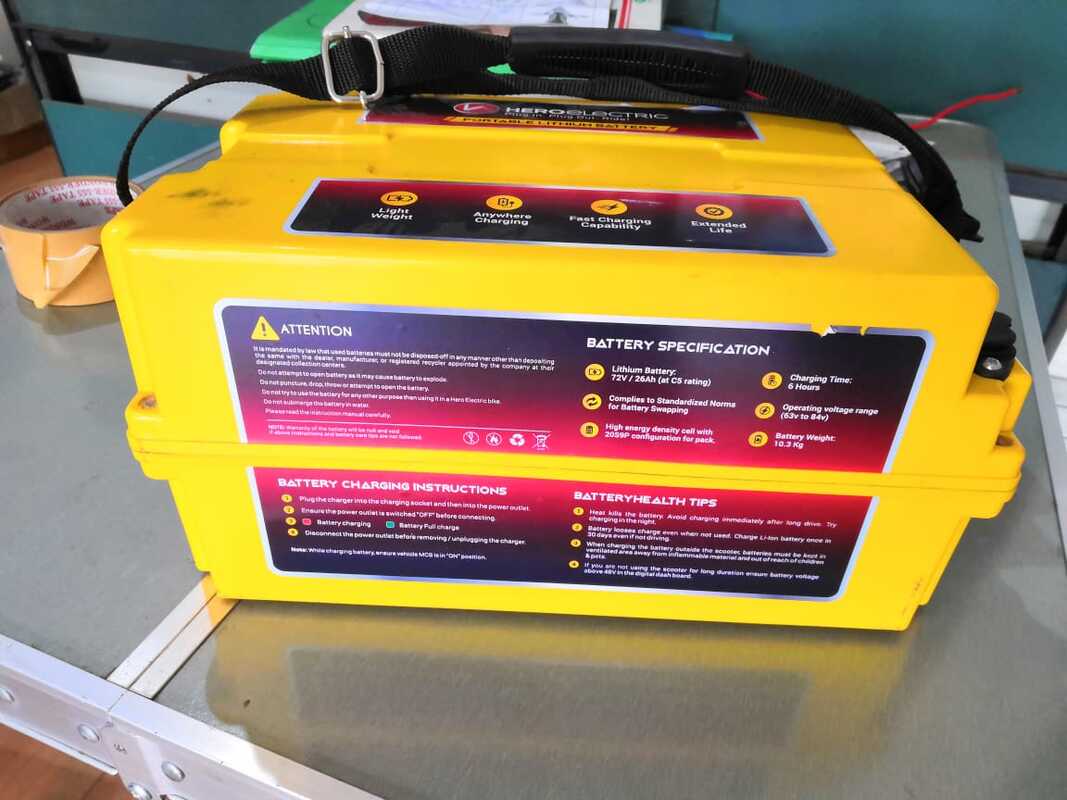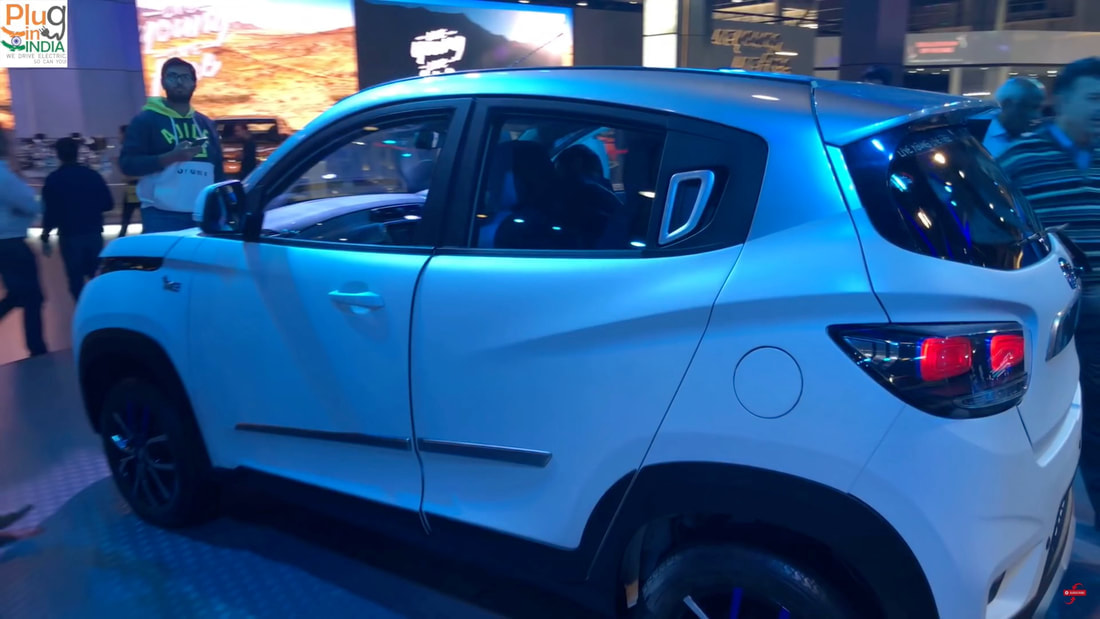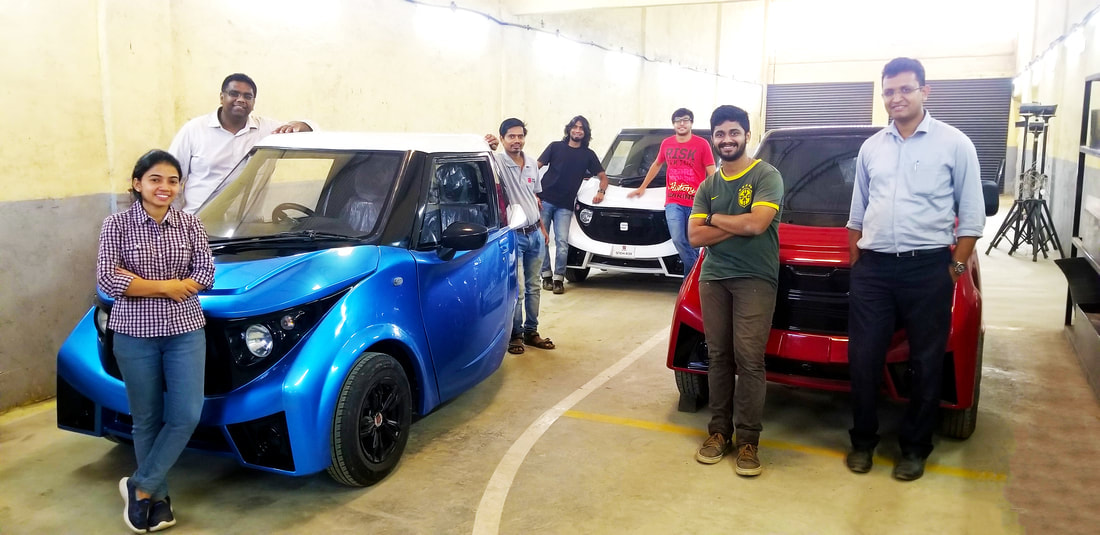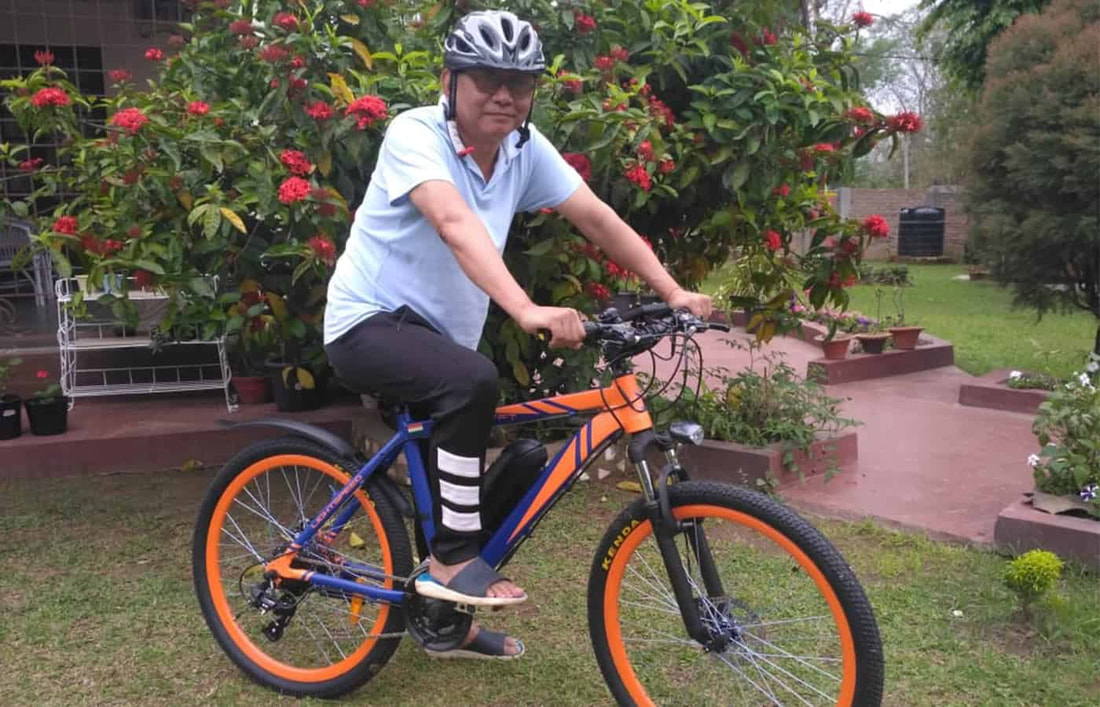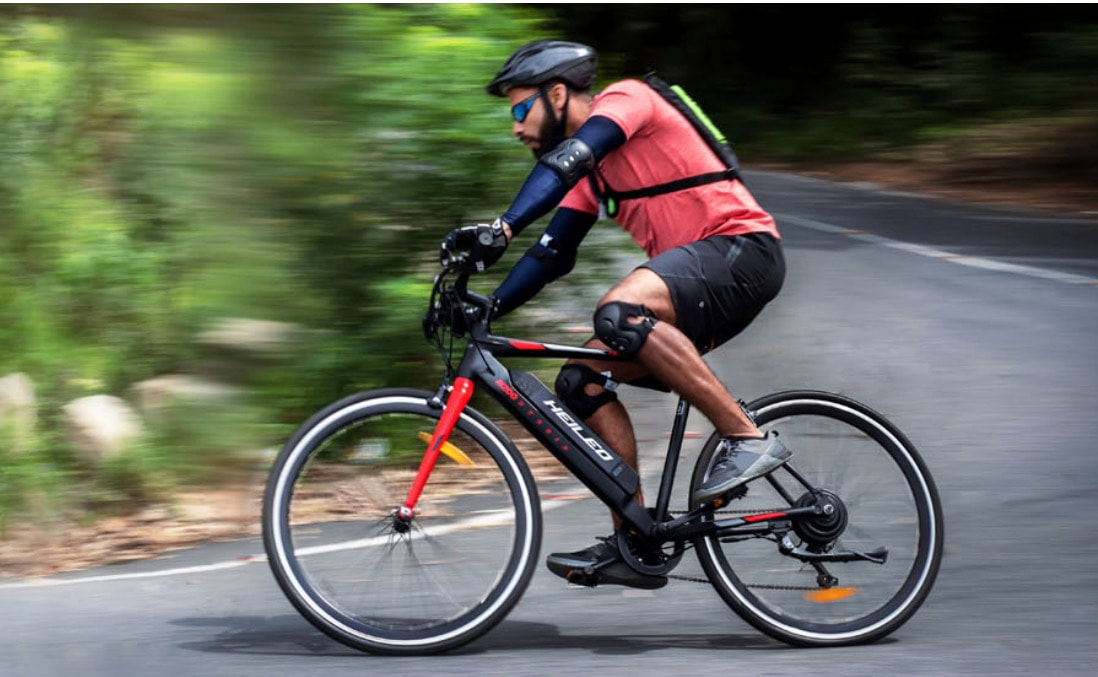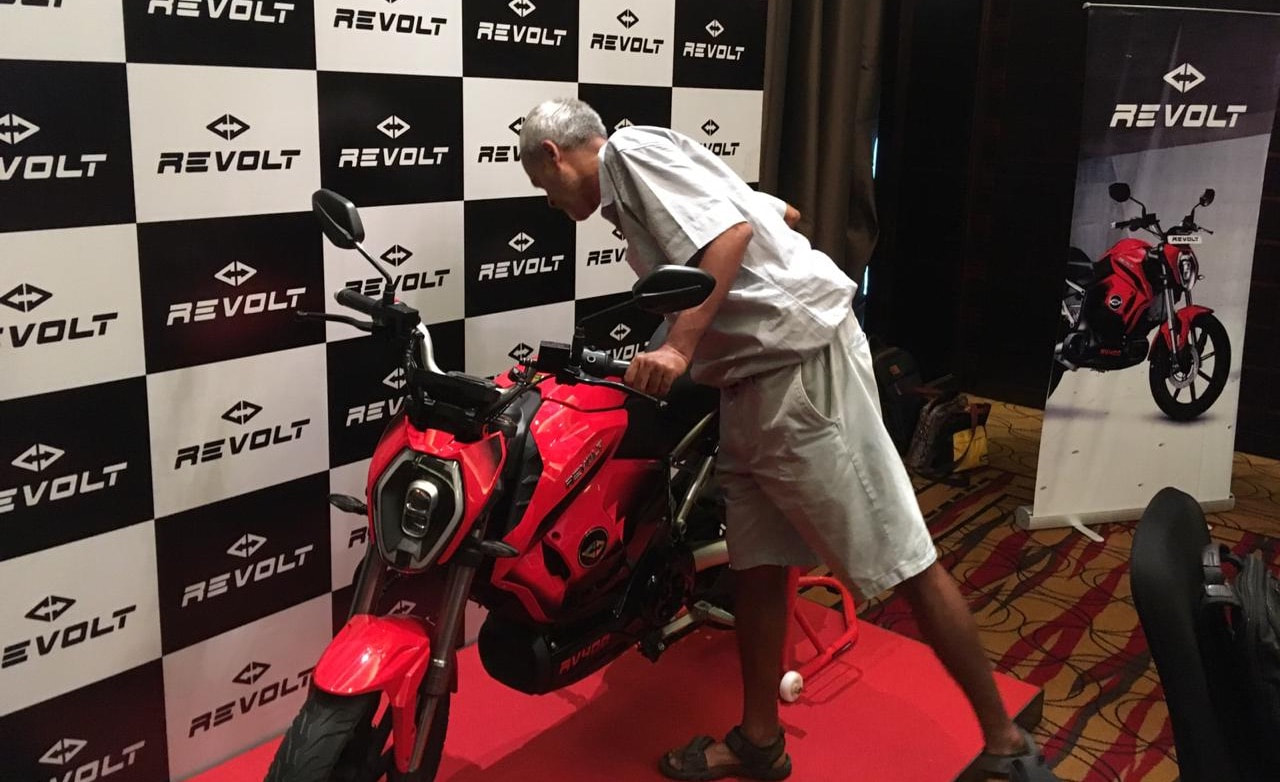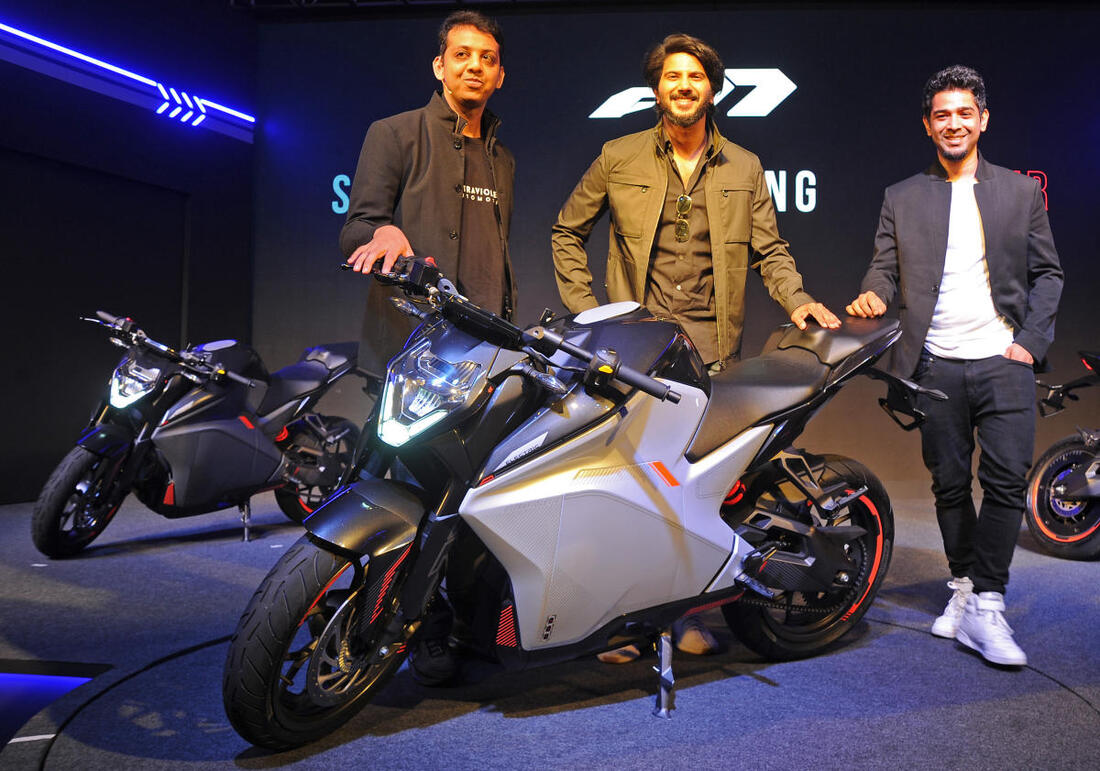2020. What a year! The world is happy to see the year leave, all our lives. The Indian electric vehicle industry too suffered a setback during the first six months of the year. Yet, by the end of the year, there is a huge wave of optimism in the industry for the coming year. This report logs the highs and lows of the Indian EV industry for 2020.
|
The year started with lot of optimism with the launch of the Tata Nexon EV from Tata Motors and Chetak electric scooter from Bajaj. EV policies were announced by various state governments which gave direction to the industry. In the electric scooter space, three big companies with a lot of money - Bajaj, Ather Energy, Ola Electric have worked hard and created ground work in 2020 to launch world class electric scooters pan India in 2021. Also in 2020, new progressive electric scooter startups like PURE EV, Batt:RE have made significant improvements in product offerings and technology. There were announcements in the shared and last mile mobility space with expansion plans by eBikeGo, Yulu, Bounce etc. Multiple municipalities have started using electric buses all over India. This will only get bigger in the coming year. Multiple delivery focussed businesses like Delhivery, Swiggy, Zomato and more have pledged to use EV's for deliveries.
On the other end of the spectrum, there were no announcements by electric car pioneer Mahindra Electric, in 2020. Their electric car launches were postponed to 2021. The electric motorcycle scene has disappointed. There has not been any action as anticipated. For example, there is no news from Tork motorcycles. Large 10+ year old electric scooter companies like Hero Electric and Ampere have continued to disappoint with their offerings. We still don't have DC fast charging stations on our highways. And 2020 was not good for Electric car fleet companies. |
|
Electric Vehicle Industry Highs in 2020
Tata Nexon EV
This electric car launch from Tata Motors has changed the perception of electric cars in the minds of many people who were skeptical about EV's. Tata's holistic EV vision was showcased during the launch of the Nexon EV, where all the Tata group companies came together to drive Tata's EV ambitions. And the car has impressed its owners! The Nexon EV is going places, we have owners doing long distance journeys, taking it to iconic spots like Kanyakumari, Rohtang pass etc.
Do check our Nexon EV hub to find out more about this groundbreaking electric car.
This electric car launch from Tata Motors has changed the perception of electric cars in the minds of many people who were skeptical about EV's. Tata's holistic EV vision was showcased during the launch of the Nexon EV, where all the Tata group companies came together to drive Tata's EV ambitions. And the car has impressed its owners! The Nexon EV is going places, we have owners doing long distance journeys, taking it to iconic spots like Kanyakumari, Rohtang pass etc.
Do check our Nexon EV hub to find out more about this groundbreaking electric car.
Electric Scooters set to take off in 2021
The ground work has been done in 2020. Ather Energy is all set to start operations in 20+ cities next year. Bajaj have drawn plans to scale up their electric scooter operations and will start selling the Chetak, pan India. Ola Electric, is poised to launch a world class electric scooter in early 2021. Progressive scooter startups like PURE EV, Batt:RE have achieved very good numbers in 2020 and are set to expand their portfolio and are expected to capture a large market. We expect some some new startups too to showcase new quality electric scooters. 2021, will be the year when you will have very good choices for an electric scooter buyer, nationwide.
The ground work has been done in 2020. Ather Energy is all set to start operations in 20+ cities next year. Bajaj have drawn plans to scale up their electric scooter operations and will start selling the Chetak, pan India. Ola Electric, is poised to launch a world class electric scooter in early 2021. Progressive scooter startups like PURE EV, Batt:RE have achieved very good numbers in 2020 and are set to expand their portfolio and are expected to capture a large market. We expect some some new startups too to showcase new quality electric scooters. 2021, will be the year when you will have very good choices for an electric scooter buyer, nationwide.
Electric Vehicles for Deliveries and Shared Mobility
Logistic companies, delivery companies, Food-delivery startups and shared mobility players have drawn out plans to phase out using Internal Combustion Engine vehicles and switch to electric.
Food-delivery startups Swiggy and Zomato plan to switch at least 10 percent of their delivery fleets, mostly two-wheelers, to electric in 2021. Companies like Mahindra logistics plan to use cargo loader vehicles supplied by Mahindra Electric and Kinetic Green. Shared mobility and Scooter rental firms like Bounce and Vogo expect to transition towards a 100% EV fleets by end of 2021.
Favorable state EV policies are encouraging delivery businesses to switch to electric. For example in Delhi, if you are a food delivery business or an e-Commerce Logistics provider or a courier agency, then the policy recommends businesses to transition 50% of their fleet to electric by 2023 and have a 100% EV fleet by 2025
Logistic companies, delivery companies, Food-delivery startups and shared mobility players have drawn out plans to phase out using Internal Combustion Engine vehicles and switch to electric.
Food-delivery startups Swiggy and Zomato plan to switch at least 10 percent of their delivery fleets, mostly two-wheelers, to electric in 2021. Companies like Mahindra logistics plan to use cargo loader vehicles supplied by Mahindra Electric and Kinetic Green. Shared mobility and Scooter rental firms like Bounce and Vogo expect to transition towards a 100% EV fleets by end of 2021.
Favorable state EV policies are encouraging delivery businesses to switch to electric. For example in Delhi, if you are a food delivery business or an e-Commerce Logistics provider or a courier agency, then the policy recommends businesses to transition 50% of their fleet to electric by 2023 and have a 100% EV fleet by 2025
Electric Bus Boom
Cities and municipalities are betting big on electric buses. Pune city has expanded their Olectra-BYD electric buses to 300+ numbers in 2020. Mumbai's BEST hasordered 300+ buses from Tata Motors. Tata Motors has supplied 215 electric buses in 5 cities across India. The electric buses have clocked more than 4 million km. Olectra-BYD has contracts to supply 30 electric buses to Dehradun, 150 to Surat, 25 to Silvassa. Electric buses have been in operation Shimla, Himachal Pradesh. 50 electric buses are plying in Shimla town and 25 electric buses in Manali.
Also multiple municipalities have setup gross cost capital (GCC) contracts with private players, who will be responsible for providing the buses as well as the infrastructure needed to run them, including charging points, maintenance etc. This seems be working well for municipalities and will continue in 2021.
Cities and municipalities are betting big on electric buses. Pune city has expanded their Olectra-BYD electric buses to 300+ numbers in 2020. Mumbai's BEST hasordered 300+ buses from Tata Motors. Tata Motors has supplied 215 electric buses in 5 cities across India. The electric buses have clocked more than 4 million km. Olectra-BYD has contracts to supply 30 electric buses to Dehradun, 150 to Surat, 25 to Silvassa. Electric buses have been in operation Shimla, Himachal Pradesh. 50 electric buses are plying in Shimla town and 25 electric buses in Manali.
Also multiple municipalities have setup gross cost capital (GCC) contracts with private players, who will be responsible for providing the buses as well as the infrastructure needed to run them, including charging points, maintenance etc. This seems be working well for municipalities and will continue in 2021.
Forward Thinking State EV Policies
Multiple state governments like Delhi, Telangana etc have launched EV policies. These policies are well rounded and offer financial Incentives for purchasing an EV. For example, when you buy an EV, there is no Road Tax and Registration Fees. State policies also has provisions to focus on Charging Stations and Battery Swap Stations.
The Delhi government is also creating a dedicated EV Cell for spreading awareness on EVs. Ultimately these policies will give direction to the private sector to go ahead and invest in the electric mobility space. We anticipate more states to launch their EV policies and also expect the central government to refine their FAME 2 policy and come up with FAME 3 policy, which might get more stricter for OEM's selling EV's in India. There will be more emphasis on making in India.
All in all our government has given direction. It's now up-to the auto industry to launch more EV's. Watch our discussion on Delhi EV policy
Multiple state governments like Delhi, Telangana etc have launched EV policies. These policies are well rounded and offer financial Incentives for purchasing an EV. For example, when you buy an EV, there is no Road Tax and Registration Fees. State policies also has provisions to focus on Charging Stations and Battery Swap Stations.
The Delhi government is also creating a dedicated EV Cell for spreading awareness on EVs. Ultimately these policies will give direction to the private sector to go ahead and invest in the electric mobility space. We anticipate more states to launch their EV policies and also expect the central government to refine their FAME 2 policy and come up with FAME 3 policy, which might get more stricter for OEM's selling EV's in India. There will be more emphasis on making in India.
All in all our government has given direction. It's now up-to the auto industry to launch more EV's. Watch our discussion on Delhi EV policy
Lithium Iron Phosphate Batteries are way to go for India
This year we saw a dramatic shift by auto OEM's to use Lithium batteries and phase out Lead acid batteries in electric autos, scooters and more. And when it comes to Lithium batteries, the Lithium Iron Phosphate (LFP) chemistry seems to be winning the race compared to Lithium Nickel Manganese Cobalt Oxide (NMC) based batteries. LFP cells have a much better thermal stability in hot weather conditions and also offers more cycles, provided the discharge C rates are managed properly. Some big brands like Okaya, Exicom, Trontek are offering LFP batteries. We know of few battery startups who are working on LFP cell based battery packs. The battery in the Tata Nexon EV uses LFP cells. The Mahindra e2o which was launched in 2013, has LFP cells and owners still are using the battery pack even after 7 and half years of usage. LFP batteries are a proven technology and works well for India. We expect Tesla India to launch the Tesla Model 3 with LFP based battery manufactured in China.
This year we saw a dramatic shift by auto OEM's to use Lithium batteries and phase out Lead acid batteries in electric autos, scooters and more. And when it comes to Lithium batteries, the Lithium Iron Phosphate (LFP) chemistry seems to be winning the race compared to Lithium Nickel Manganese Cobalt Oxide (NMC) based batteries. LFP cells have a much better thermal stability in hot weather conditions and also offers more cycles, provided the discharge C rates are managed properly. Some big brands like Okaya, Exicom, Trontek are offering LFP batteries. We know of few battery startups who are working on LFP cell based battery packs. The battery in the Tata Nexon EV uses LFP cells. The Mahindra e2o which was launched in 2013, has LFP cells and owners still are using the battery pack even after 7 and half years of usage. LFP batteries are a proven technology and works well for India. We expect Tesla India to launch the Tesla Model 3 with LFP based battery manufactured in China.
Rapid Localization and Making In India
The FAME 2 incentive scheme encouraged electric vehicle original equipment manufacturers(OEM) to make many important parts in India. By the end of 2020, EV's sold with a FAME 2 subsidy, have localized components which are Made In India. Many OEM's have localized upto or more than 60% of their components by parts and in some cases upto 80-90% in value. Mahindra Electric recently launched the Tero Zor Electric Cargo vehicle. Except the Lithium cells, every other component is Made In India including the Motor, Controller, Power Electronics, BMS, Battery Pack etc. Companies like Ather Energy makes most of the components in India. Electric scooter startups like PURE EV, Batt:RE, Okinawa, Hero Electric are rapidly localizing components in their scooters.
What we have realized that, our EV industry is way ahead of the game in terms of localisation compared to many other industries like Solar, Phones, Consumer Electronics.
In our Atmanirbhar Bharat, Electric Vehicles & China article and video, we showed how this is true. For example, the Indian pharma industry is heavily dependent on China. At least 65% of India's Active Pharmaceutical Ingredient (API) requirements come from China. Also the pollution vehicle industry, is dependent on China for critical engine, alloys, plastics and transmission components. There are other industries that have more dependency on China than the EV industry. The entire argument that Electric Vehicles = China dependency is wrong. People who are making these statements have an agenda against EV's or they are misguided. We expect the Indian EV Industry to increase their localization efforts in 2021 with stricter rules in FAME 3 guidelines.
The FAME 2 incentive scheme encouraged electric vehicle original equipment manufacturers(OEM) to make many important parts in India. By the end of 2020, EV's sold with a FAME 2 subsidy, have localized components which are Made In India. Many OEM's have localized upto or more than 60% of their components by parts and in some cases upto 80-90% in value. Mahindra Electric recently launched the Tero Zor Electric Cargo vehicle. Except the Lithium cells, every other component is Made In India including the Motor, Controller, Power Electronics, BMS, Battery Pack etc. Companies like Ather Energy makes most of the components in India. Electric scooter startups like PURE EV, Batt:RE, Okinawa, Hero Electric are rapidly localizing components in their scooters.
What we have realized that, our EV industry is way ahead of the game in terms of localisation compared to many other industries like Solar, Phones, Consumer Electronics.
In our Atmanirbhar Bharat, Electric Vehicles & China article and video, we showed how this is true. For example, the Indian pharma industry is heavily dependent on China. At least 65% of India's Active Pharmaceutical Ingredient (API) requirements come from China. Also the pollution vehicle industry, is dependent on China for critical engine, alloys, plastics and transmission components. There are other industries that have more dependency on China than the EV industry. The entire argument that Electric Vehicles = China dependency is wrong. People who are making these statements have an agenda against EV's or they are misguided. We expect the Indian EV Industry to increase their localization efforts in 2021 with stricter rules in FAME 3 guidelines.
Electric Vehicle Industry Lows in 2020
Postponed Electric Car launches
Mahindra Electric were set to launch their electric cars the eKUV and the Atom in 2020. They have confirmed that these 2 electric cars will be launched before first quarter of 2021. Mahindra was the first traditional Indian car OEM to offer electric mobility for India in a large scale. Their electric vehicles have completed 250 million km, which are oil and emission fee transportation, saving 25,000 metric tons of CO2 which is very impressive. But their lethargy in moving ahead and launching new electric cars has been disappointing to the EV community. We wrote an article on how Mahindra could have been a market leader in Electric cars and chose not to.
Another promising electric car startup - Strom Motors, who showcased their 3 wheel electric car in 2018, has been silent regarding their electric car launch.
Large ICE car manufacturers like Maruti and MNCs are not even discussing launching electric cars in India, which is a big problem. Regulations are the only way to get them to offer EV's in India. If there are no regulations, it will be business as usual and MNC after MNC will enter the Indian market to dump their oil-guzzling SUVs on us. We wrote an article on how why India does not need more pollution SUVs.
Mahindra Electric were set to launch their electric cars the eKUV and the Atom in 2020. They have confirmed that these 2 electric cars will be launched before first quarter of 2021. Mahindra was the first traditional Indian car OEM to offer electric mobility for India in a large scale. Their electric vehicles have completed 250 million km, which are oil and emission fee transportation, saving 25,000 metric tons of CO2 which is very impressive. But their lethargy in moving ahead and launching new electric cars has been disappointing to the EV community. We wrote an article on how Mahindra could have been a market leader in Electric cars and chose not to.
Another promising electric car startup - Strom Motors, who showcased their 3 wheel electric car in 2018, has been silent regarding their electric car launch.
Large ICE car manufacturers like Maruti and MNCs are not even discussing launching electric cars in India, which is a big problem. Regulations are the only way to get them to offer EV's in India. If there are no regulations, it will be business as usual and MNC after MNC will enter the Indian market to dump their oil-guzzling SUVs on us. We wrote an article on how why India does not need more pollution SUVs.
Electric Cycle Industry is struggling to keep up with demand
Hero cycles, the giant Indian cycle manufacturer had launched their Lectro brand of electric cycles (eBikes). In 2020, they launched multiple models with affordable rates below
Rs 30,000 and have captured a huge market share. We have many smaller brands like LightSpeed, eAdicct, Elektron, Touche, Pedeleze, Felidae who are selling eBikes in smaller numbers.
However the Indian electric cycle industry is struggling in the following areas
The entire electric cycle industry needs to work together and solve these issues and scale up in 2021.
Hero cycles, the giant Indian cycle manufacturer had launched their Lectro brand of electric cycles (eBikes). In 2020, they launched multiple models with affordable rates below
Rs 30,000 and have captured a huge market share. We have many smaller brands like LightSpeed, eAdicct, Elektron, Touche, Pedeleze, Felidae who are selling eBikes in smaller numbers.
However the Indian electric cycle industry is struggling in the following areas
- Most electric cycle companies import components and sometimes entire eBike frames and eBikes from China, Taiwan or other countries. It's difficult to localize ebike components like Motor, Controllers, alloy frames etc as the Indian vendors cant match the prices as China and Taiwan have scale advantage.
- Most of these smaller companies have 2-3 month period every year, where they run out of stock. They dont sell anything while they wait for containers to land in Indian ports.
- We still are yet to see a decent electric cycle that offers 50-60 km range which costs under Rs 30,000. Hero Lectro have been selling eBikes under Rs 30,000 but they are offering tiny batteries (5.4 Ah) with average cycle components to keep costs low.
The entire electric cycle industry needs to work together and solve these issues and scale up in 2021.
Lethargic Electric Motorcycle Space
Revolt Electric Motorcycles was launched in 2019 and the team did very well to expand into 6 cities by the end of 2020. However, Revolt have been not accepting bookings in some cities and not offering test rides in some experience centers too. We know people who are yet to receive their electric motorcycle having booked it in early 2020. All this points to huge supply side and vendor issues. Revolt will need to make some dramatic changes and improvements in their ability to scale up if they want to be a leader in this space.
Ultraviolet Motorcycles, Tork Motors have been promising startups for 4+ years now, with no sight of their production motorcycle. Evoke motorcycles is a Chinese OEM who has setup factories and operations in India. They too have let 2020 pass by. We expect them to launch their electric motorcycles soon. PURE EV, the electric scooter startup will launch a motorcycle. Few more startups like - Raptee Motors, One Electric to make some progress in the electric motorcycle space.
We expect 2021 to be more promising, but the bar is very low anyway. And we don't expect the likes of Bajaj, Hero, Suzuki to even care. For them selling pollution motorcycles is important and wont change or offer EV options until they are forced to by regulations.
Revolt Electric Motorcycles was launched in 2019 and the team did very well to expand into 6 cities by the end of 2020. However, Revolt have been not accepting bookings in some cities and not offering test rides in some experience centers too. We know people who are yet to receive their electric motorcycle having booked it in early 2020. All this points to huge supply side and vendor issues. Revolt will need to make some dramatic changes and improvements in their ability to scale up if they want to be a leader in this space.
Ultraviolet Motorcycles, Tork Motors have been promising startups for 4+ years now, with no sight of their production motorcycle. Evoke motorcycles is a Chinese OEM who has setup factories and operations in India. They too have let 2020 pass by. We expect them to launch their electric motorcycles soon. PURE EV, the electric scooter startup will launch a motorcycle. Few more startups like - Raptee Motors, One Electric to make some progress in the electric motorcycle space.
We expect 2021 to be more promising, but the bar is very low anyway. And we don't expect the likes of Bajaj, Hero, Suzuki to even care. For them selling pollution motorcycles is important and wont change or offer EV options until they are forced to by regulations.
Where are the highway charging stations?
We have multiple players setting up EV charging stations. Companies and public sector organizations like EESL, Tata Power, REIL and few more are working on setting up charging stations. But not even a single highway is electrified with DC Fast charging stations. More businesses and people will buy electric cars if highways are electrified.
We hope 2021 will be more promising.
We have multiple players setting up EV charging stations. Companies and public sector organizations like EESL, Tata Power, REIL and few more are working on setting up charging stations. But not even a single highway is electrified with DC Fast charging stations. More businesses and people will buy electric cars if highways are electrified.
We hope 2021 will be more promising.
2020 was not good for Electric Car fleets
The pandemic happened. We had lockdowns. Office workers stayed home. Many corporates in multiple industries have setup work from home policies. There are less people traveling to work compared to the pre-pandemic era. And the entire business model of our EV fleet startups was dependent on ferrying employees. Startups like like EEE Taxi, Lithium Urban Technologies, Ryde have recorded a drop in business in 2020. Blu Smart, the B2C ride hailing service has not expanded beyond Delhi-NCR.
We hope 2021 will be better for electric car fleets.
The pandemic happened. We had lockdowns. Office workers stayed home. Many corporates in multiple industries have setup work from home policies. There are less people traveling to work compared to the pre-pandemic era. And the entire business model of our EV fleet startups was dependent on ferrying employees. Startups like like EEE Taxi, Lithium Urban Technologies, Ryde have recorded a drop in business in 2020. Blu Smart, the B2C ride hailing service has not expanded beyond Delhi-NCR.
We hope 2021 will be better for electric car fleets.
Final Words
What are your thoughts on the Indian EV scene? I feel the EV industry has come a long way. We are just starting to see few established auto makers take EV's seriously. Some startups are beginning to grow and have large operations. We are seeing very good improvements in battery technology, which will make EV's more reliable.
This is just the beginning and this decade will be an Electric decade. Finally we can together kick the dirty oil habit and move to EV's en masse.
What are your thoughts on the Indian EV scene? I feel the EV industry has come a long way. We are just starting to see few established auto makers take EV's seriously. Some startups are beginning to grow and have large operations. We are seeing very good improvements in battery technology, which will make EV's more reliable.
This is just the beginning and this decade will be an Electric decade. Finally we can together kick the dirty oil habit and move to EV's en masse.

